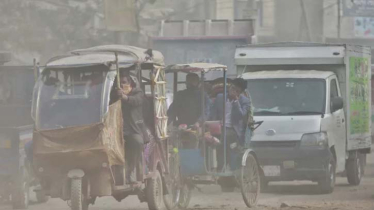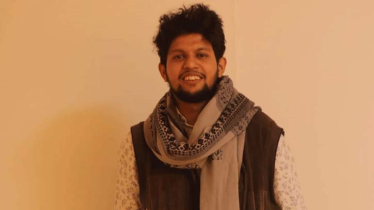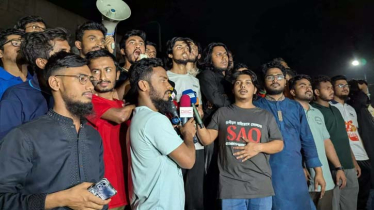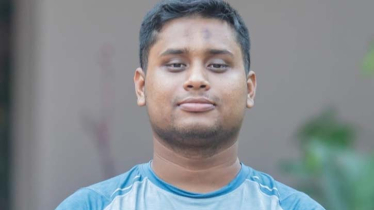
Photo: Courtesy
Bangladesh is facing a significant climate finance gap. While financial support from developed countries addresses some financial challenges, it does not fully address the issue of climate justice. There is a pressing need to significantly increase investments to tackle the country’s complex climate change challenges. Climate finance, adaptation, and mitigation strategies must be equitable and prioritise the most vulnerable communities.
These proposals were raised at a seminar titled ‘Road to Baku-COP29: Bangladesh CSOs at the Forefront of Climate Resilience’, organised by 20 national civil society organisations at the Department of Environment in Agargaon on Sunday (20 October).
Syeda Rizwana Hasan, Advisor to the Ministry of Environment, Forest and Climate Change, was the chief guest. Dr. Abdul Hamid, Director General of the Department of Environment, was present as a special guest. Farah Kabir, Country Director of ActionAid Bangladesh, and Dr. S M Munjurul Hannan Khan, Executive Director of Nature Conservation Management (NACOM), were also present. The seminar was attended by representatives from various civil society organisations, climate activists, and policy experts.
In her keynote speech, Syeda Rizwana Hasan stated, “As a representative of least developed countries, Bangladesh will strongly advocate for significant increases in climate finance, debt relief mechanisms, and a just energy transition at COP29. An estimated $480 billion is needed annually by 2030, far exceeding the current insufficiently funded $100 billion pledge. This financial support is crucial as climate change threatens to reduce Bangladesh's GDP by nearly 9.8% by 2050 and caused losses of $11.3 billion in 2021 alone (World Bank, 2021).”
Syeda Rizwana Hasan reiterated Bangladesh’s commitment to limiting global warming to 1.5 degrees Celsius. She emphasized the importance of adaptation measures and called for greater youth involvement in these efforts. She also highlighted the need to clearly articulate international challenges and ambitious mitigation initiatives. She underscored the importance of active civil society participation in Bangladesh ahead of the COP29 summit.
Dr. Abdul Hamid, Director General of the Department of Environment, stressed the importance of climate change adaptation. stated that ‘Bangladesh urgently needs more funding for climate adaptation. We need to strongly advocate for this at the upcoming COP. We have received only one project from the $10 billion adaptation fund. We need to focus on this.’
Farah Kabir, Country Director of ActionAid Bangladesh, highlighted that climate change disproportionately affects women, children, the third gender, and marginalised communities. She said that ‘climate finance must not only be gender-sensitive but also gender-responsive. The upcoming climate summit must prioritize the water crisis and highlight its negative impacts on women and children.’ She emphasized the need to address the mental health impacts of climate change on communities.
Dr. S M Monjurul Hannan Khan, Executive Director of Nature Conservation Management (NACOM), said, “There is no alternative but to alleviate the suffering of those affected by climate change. Although Bangladesh contributes very little to carbon emissions, it is undertaking significant adaptation efforts. For this, we need much more climate finance. Simultaneously, there is a need for knowledge and technology exchange.”
The primary objective of the seminar was to develop a unified position for Bangladesh’s civil society on the upcoming COP29 negotiations. Various experts presented papers on different aspects of climate finance, including Tanzia Anzum, Roufa Khanum, M. Zakir Hossain Khan, Mohammad Salah Uddin, Rubaya Nasrin Shejuti, and Fariha Aumi.
The seminar concluded with a strong call for advocacy at COP29 to ensure that the voices of vulnerable countries like Bangladesh are heard in global climate discussions. Participants called for stronger actions on adaptation and mitigation, including greater involvement of women and youth, effective implementation of the loss and damage fund, and increased investment in renewable energy by phasing out fossil fuel financing. The participants expressed hope that Bangladesh would set an example in addressing climate change and building resilience.
The event was attended by representatives from various civil society organisations, national and international organizations, climate and environmental experts, policy experts, climate activists, and media personnel.
Messenger/Fameema








